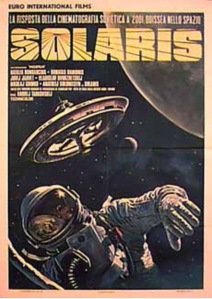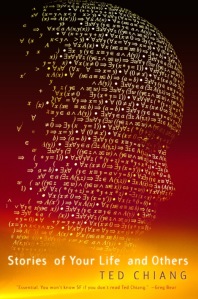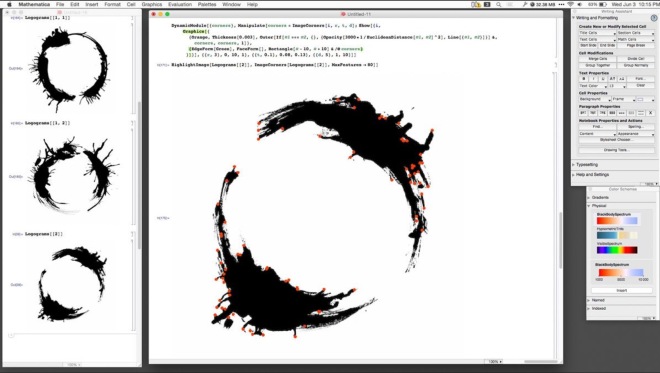 Andrei Tarkovsky used images to express messages and ideas, and there have been few who have done it better. Rather than rely so much on words, he masterfully constructs hypnotic scenes with emotional impact and real a sense of place (his 1966 Andrei Rublev is considered one of the best representations of pre-Tsarist Russia). His 1972 Solaris, an adaptation of Stanislaw Lem’s novel, is probably his most accessible film, but some have complained of his characteristic, overly drawn-out takes.
Andrei Tarkovsky used images to express messages and ideas, and there have been few who have done it better. Rather than rely so much on words, he masterfully constructs hypnotic scenes with emotional impact and real a sense of place (his 1966 Andrei Rublev is considered one of the best representations of pre-Tsarist Russia). His 1972 Solaris, an adaptation of Stanislaw Lem’s novel, is probably his most accessible film, but some have complained of his characteristic, overly drawn-out takes.
The movie, about a space mission gone wrong, is set mostly on earth and in a space station, and is a sort of condemnation of human scientific advancement, however imaginatively he represents the oozing, colorful world of the planet Solaris.
If the viewer watches this film without regard to the texture of the scenes, the boredom will be excruciating. To be fair, for most, the limit for watching a car drive through a tunnel or for staring at blades of grass swaying in the river is no more than a few seconds. But in Tarkovsky’s insistence on portraying the real world, ordinary audience sensibilities and expectations are tested, and for the patient and observant, satisfied. And in Solaris, the contrast of space and earth proves to be extremely effective in creating a nostalgia for home. When the tangibility of the scenes can be conveyed by simple realia — a flickering flame, falling rain, the warm glow of yellow light, the rigid mechanical feel of (now dated) spaceship panels and buttons — the emotions that are experienced in the film are heightened. This is how Tarkovsky made a space movie that can be relatable and real, and one that survives any of those dated details of 1970s science fiction. There are too many examples to list, but the following clip is a great instance of drama heightened by way of the depth, texture and realism of the scene. Listen to the ambient sounds and the musical timing of the soundtrack.
Or the long shots in this scene, where a Pieter Brueghel painting stimulates memory of the character’s far-away earth.
Tarkovsky’s ethereal space world in Solaris is both imaginative and familiar, and demonstrates a universe within that rivals the complexity and vastness of the outward universe. But save this one for a rainy day, accompanied by a bottle of wine.




